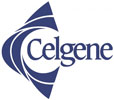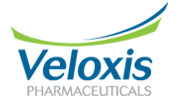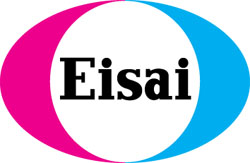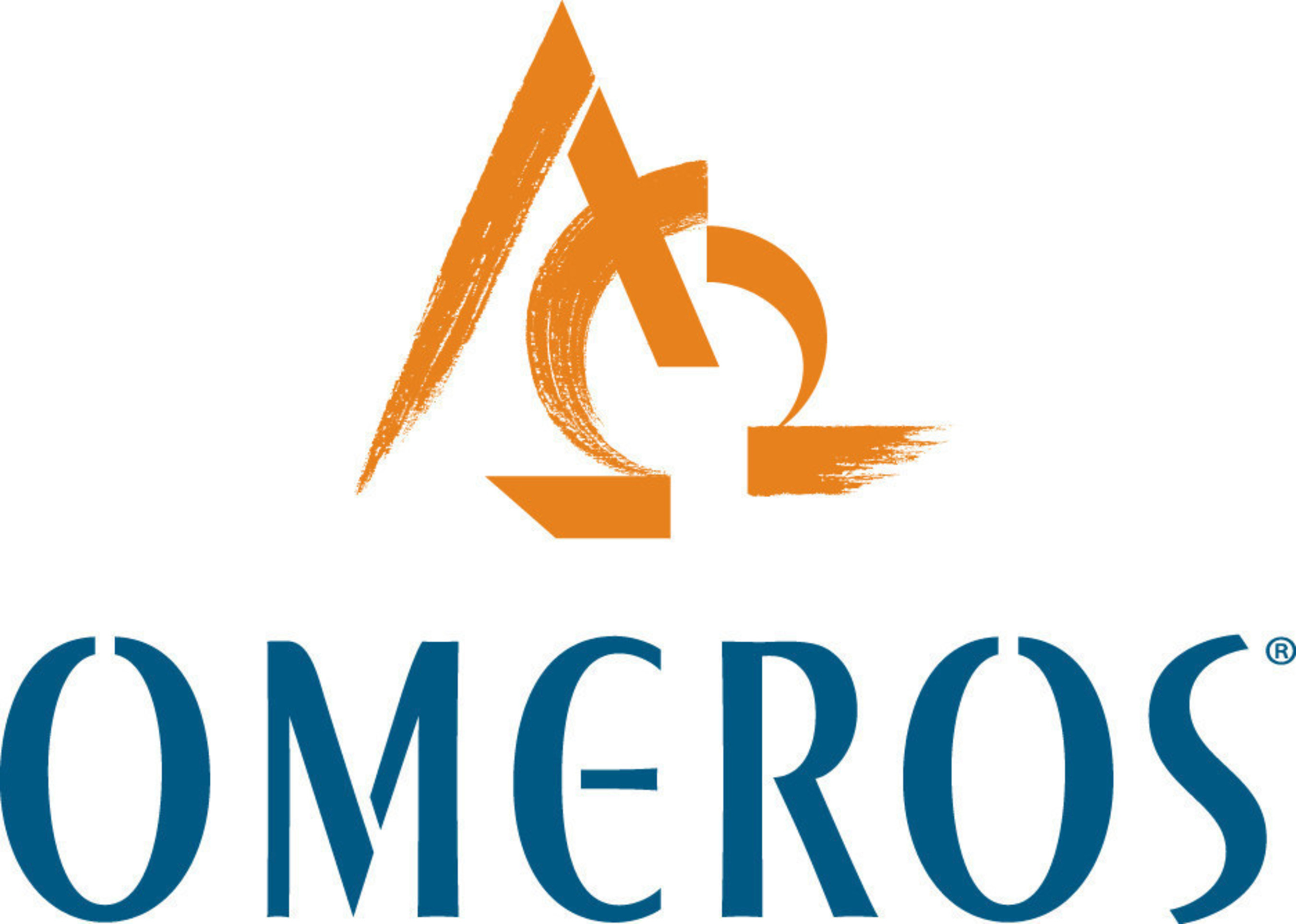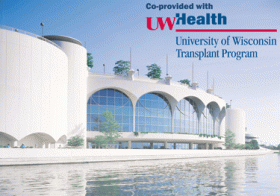
Remarkable Strength: Bringing Transplant to Life
Learn about exciting topics on transplantation from UW Health Transplant Program experts! |
Join us for this two-day conference wherein experts from one of the nation’s most experienced and active transplant centers will share remarkable developments in the field of transplantation.
From research to bedside, these clinical experts will share their experience in designing best practices in this complex field of medicine. Faculty will explore the advances and alternatives that are taking the industry from “what we know” to “what we do,” creating possibilities that will transform transplantation. You will also have the opportunity to hear firsthand from UW Health’s grateful transplant recipients and living donors as they share their remarkable journeys.
Target Audience
Designed for the interprofessional health care team
This educational activity has been developed by health care professionals to promote collaborative practice in health care delivery by providing a broad range of topics for a variety of learners. Content is designed for those who care for and/or manage patients’ health care benefits, as well as those who have an interest in learning best practices for optimal management in the areas of solid organ transplantation—including kidney, pancreas, liver, heart and lung transplants—with added emphasis on management of unique complications associated with transplantation. In addition, the conference will address stem cell and bone marrow transplantation.
Learning Objectives
After completion of this activity, the participant should be able to:
- Cite advances in tolerance induction with transplantation.
- State new developments in paired-kidney-exchange strategies for successful outcomes.
- Recognize the future role of xenotransplantation.
- Explain the emerging role of chimeric antigen receptor (CAR) T-cell treatment options.
- Describe the risks and benefits of transplanting a hepatitis C- recipient with a hepatitis C+ donor.
- Identify best practices for pediatric kidney transplantation and how they differ from those of adults in terms of growth issues, nonadherence to medications, and transition into adulthood.
- Examine the concept of normothermic organ preservation and its role in transplantation.
- Discuss best practices and emerging therapies for heart, lung, pancreas and liver transplantation.
- Explore strategies to transplant individuals with low model for end-stage liver disease (MELD) scores, as well as recent developments in liver tumors and hepatocellular carcinoma.
- Examine new donor interventions to enhance organ recovery and utilization.
- Summarize changes in United Network for Organ Sharing (UNOS) policies that may impact waitlist mortality, outcomes, and provider and patient satisfaction.
Don't miss the unique opportunity to reach this targeted audience of health care professionals during “Remarkable Strength: Bringing Transplant to Life.”
Exhibitor and supporter resources
> Exhibit Space Application |
Acknowledgements
OptumHealth Education gratefully acknowledges our supporters. Click on the organization's logo to be redirected to its website.
Annual Conference Supporters
Diamond
Gold
Silver
Event Supporter
Event Promotional Supporter

Meeting Location: Monona Terrace Community and Convention Center
"Remarkable Strength: Bringing Transplant to Life" will be held at Monona Terrace Community and Convention Center. The Monona Terrace is conveniently located just two blocks from Wisconsin’s State Capitol and streets full of shops and restaurants. Enjoy stunning views from the 68,000-square-foot rooftop garden that celebrates the beautiful Madison cityscape.
> www.mononaterrace.com
Parking and directions: Click here for driving directions, detailed parking information and a printable map. Monona Terrace features a state-owned and -managed 600-space, automated parking structure available 24 hours and is accessible via West Wilson Street and the eastbound lanes of John Nolen Drive. Acceptable forms of payment for the automated ramp include MasterCard, Visa or cash (no coin).
Travel
Accommodations: Hilton Madison Monona Terrace
9 East Wilson Street
Madison, Wisconsin, 53703
+1-608-255-5100
> Hotel details
Hilton Madison Monona Terrace is located in the heart of downtown Madison. The hotel is connected via a climate-controlled skywalk to the Monona Terrace Community and Convention Center. Relax in elegantly comfortable rooms and take advantage of terrific dining, leisure, and event options.
Hotel reservations:
Book your reservation online
Toll-free reservations: (877) 510-7465. To receive the conference discounted room rate, you must reserve your room by Monday, June 24, and mention "Optum."
Hotel room rate and fee: $179 per room, per night and subject to prevailing state and local taxes. You are required to have a two night reservation in order to receive the special group rate.
Reservation deadline: Monday, June 24, 2019, or when rooms sell out, whichever comes first. Reservations made after this date, or after the room block is sold out, will be accepted on a space-available basis at the prevailing room rate. Madison is a popular destination in the summer, so reserve your room early!
Parking and Directions
Parking and directions: Click here for parking, map and driving directions.
Self-parking: $17.00 (garage parking, in/out access)
Valet parking: $20.00 (in/out access)
Attention UnitedHealth Group, UnitedHealthcare, Optum Employees
To book your hotel stay: To reserve a room at the Hilton Madison Monona Terrace, please follow the reservation instructions listed above to receive the group discounted rate (do not use Concur or BCD Travel for reservations).
To book your flight: Please submit the REQUIRED Travel Request Form, prior to registration, if your travel includes airfare. The business justification on your form should include: “OptumHealth Education Remarkable Strength: Bringing Transplant to Life conference.” Do not book airfare until the form has been approved.
Conference Attire
Suggested attire for the conference is business casual. Although every effort is made to maintain a comfortable learning environment, meeting room temperatures can fluctuate greatly and may be difficult to control. Since it is difficult to adjust meeting room temperatures to suit individual preferences, please bring a sweater or jacket, and/or wear layered clothing to ensure your comfort.
Faculty and Planning Committee
Click here for a list of faculty and planning committee members.
Agenda
Printable Schedule-at-a-Glance (Updated: 07/02/2019)
Wednesday, July 24
Thursday, July 25
WEDNESDAY, JULY 24, 2019 — Up to 6.0 continuing education credits available. — ACPE UAN JA0007123-0000-19-047-L01-P/T
7:45 a.m. | Registration and Continental Breakfast |
8:45 a.m. | Welcome and Opening Remarks |
9:00 a.m. | New Horizons in Tolerance Induction, Peiman Hematti, MD and Dixon B. Kaufman, MD, PhD, FACS Although transplantation has been a standard medical practice for decades, marked morbidity from the use of immunosuppressive drugs and poor long-term graft survival remain challenges in the field. Achieving reconstitution of immune tolerance in clinical medicine is a formidable challenge. This session will discuss current barriers to successful long-term allograft survival and describe strategies for inducing immune tolerance for the transplant recipient. Learning objectives:
|
10:00 a.m. | Break — Exhibits Open |
10:15 a.m. | New Developments in Paired Kidney Exchange, Didier Mandelbrot, MD and Marie Green Ganser,Living Kidney Donor The treatment options for kidney failure are either continual dialysis or a kidney transplant. The preferred treatment for kidney failure is a transplant due to the costs of dialysis and long-term efficacy. Living donation plays an important role in providing high quality kidneys for transplantation, but because of frequent immunological incompatibilities, kidney-exchange models were designed. This session will discuss paired kidney exchange, the benefits, challenges and their outcomes. Learning objectives:
|
11:15 a.m. | The Future of Xenotransplantation, Robert Redfield III, MD In light of the lack of supply of human organs for transplantation, several alternatives have been investigated and debated. These include xenotransplantation and the challenges of immunologic and biologic barriers, as well as ethical issues in relation to xenotransplantation. This session will discuss the benefits/risk-to-benefit analysis and the future role of xenotransplantation. Learning objectives:
|
12:15 p.m. | Lunch (provided) — Exhibits Open |
1:15 p.m. | Are We Putting the Horse Before the CAR T? Natalie Callander, MD Chimeric antigen receptor (CAR) T-cell therapy is thought to bring a new era in cancer immunotherapy. This field has rapidly advanced from a promising form of immuno-oncology in preclinical models, to CAR T-cells therapy to treat leukemia and lymphoma. This session will discuss the role of CAR T-cell therapy, main genetic modification strategies, risk factors and safety, as well as outcomes. Learning objectives:
|
2:15 p.m. | Break — Exhibits Open |
2:30 p.m. | Transplanting Hepatitis C+ Donors in Hepatitis C- Recipients, John Rice, MD Despite many efforts to increase the size of the donor pool, there is a large and growing disparity between the number of donors and the number of patients on the transplant waiting list. New donor pools are needed to satisfy the lack of available donor organs, along with expanded criteria for the existing donor pools. Advances in hepatitis-C therapy has allowed the transplant community to look toward utilization of grafts from hepatitis-C-positive donors to expand the organ pool. This session will discuss strategies to reduce waitlist mortality and increase transplantation rates through expanded criteria relating to hepatitis-C donors to nonviremic recipients. Learning objectives:
|
3:30 p.m. | Pediatric Kidney Transplantation: Not Just Small Adults, Sharon Bartosh, MD; Lorelei Cavazos, Long Term Kidney Transplant Recipient; and Timothy Sanders, Father, Pediatric Recipient Renal transplantation is accepted as the treatment choice for children with end-stage renal disease, as it provides better quality of life and improves the chances of long-term survival than other types of renal-replacement therapies. The care of children with kidney disease is complex and requires a strong multidisciplinary team to attend to the challenges of these patients and their families. This session will identify best practices for pediatric kidney transplantation and show how it differs from those of adults in terms of growth issues, nonadherence to medications, and transition into adulthood. Learning objectives:
|
4:30 p.m. | Adjourn |
THURSDAY, JULY 25, 2019 — Up to 6.0 continuing education credits available. — ACPE UAN JA0007123-0000-19-047-L01-P/T
7:30 a.m. | Registration and Continental Breakfast — Exhibits Open |
8:30 a.m. | Opening Remarks |
8:45 a.m. | Normothermic Organ Preservation, Tony D'Alessandro, MD Normothermic machine preservation (NMP) is a promising preservation technology that has the potential to dramatically increase organ utilization. The key role for this technology is to increase the number and quality of solid-organ grafts available for transplantation and to reduce waiting list deaths. This session will discuss the concept of normothermic organ preservation and its role in transplantation and explore the benefits and risks of normothermic machine perfusion for the preservation of organs. Learning objectives:
|
9:45 a.m. | Break — Exhibits Open |
10:00 a.m. | Pancreas Transplantation for Type-2 Diabetes (T2D): Evidence-based Practice, Solid-organ pancreas transplantation for individuals with diabetes mellitus (DM) have demonstrated improvements in quality of life, and with the ability to abrogate the complications of dysregulated glucose control has now allowed the procedure to be offered to many with type-2 diabetes. Indications and patient selection, however, are critical both to individual outcomes and to further advance national support of pancreas transplantation for all. This session will discuss patient demographics that remain important in the evaluation and transplantation of patients with type-2 DM. Learning objectives:
|
11:00 a.m. | Strategies to Transplant Patients with Low Model for End-Stage Liver Disease (MELD) Scores, Luis Fernandez, MD, FACS and Patti Jackson, Living Liver Donor The MELD score, which estimates mortality within 90 days, determines priority for liver transplantation. However, longer-term outcomes on the waitlist for individuals who are initially listed with low MELD scores are not well characterized. This effect may represent a population who were listed with serious complications of liver disease but without evidence of significantly abnormal MELD component values. Individuals with low-listing MELD scores remain at a significant risk for death due to liver-related causes and may benefit from early access to transplantation. This session will identify individuals who are at risk for waitlist mortality and address strategies to provide transplant to patients with low MELD scores. Learning objectives:
|
12:00 p.m. | Lunch (provided) — Exhibits Open |
1:00 p.m. | Updates in Lung Transplantation, Daniel P. McCarthy, MD, MBA, MEM Lung transplantation is a complex therapy with a significant risk of perioperative morbidity and mortality. Lung transplantation should be considered for patients with advanced lung disease whose clinical status has progressively declined despite maximal medical or surgical therapy. This session will provide updates in guidelines for recipient selection that have been developed by the International Society of Heart and Lung Transplantation (ISHLT) and the disease-specific indications. The advantages and disadvantages of the different types of lung transplantation will also be discussed. Learning objectives:
|
2:00 p.m. | Break — Exhibits Open |
2:15 p.m. | End-Stage Heart Failure: Drugs, Devices or a New Heart? Ravi Dhingra, MD, MPH and Dave Weigel, Heart Transplant Recipient Patients with heart failure typically experience a progressive decline in physical functioning and a gradual increase in symptom severity. Interventions can be initiated to reduce the symptoms for these individuals and improve their quality of life. This session will discuss treatment options available to manage individuals with advanced heart failure, specifically focusing on medical management, assist devices and transplantation. Learning objectives:
|
2:45 p.m. | New Approaches to Heart Organ Recovery, Jason Smith, MD Cardiac transplantation is the best treatment available for patients with end-stage heart failure, but the shortage of donor hearts is the main factor limiting the use of this treatment. Advancing organ preservation for transplantation by developing innovative medical technologies and support systems to preserve and protect donor organs is essential to meet the needs of organ shortages and transform outcomes posttransplantation. Learning objectives:
|
3:15 p.m. | What’s New from the United Network for Organ Sharing (UNOS)? UNOS manages the national transplant waiting list through policy, education and technology. It brings together the transplant community to develop policies that make the best use of the limited supply of organs and give all patients a fair, unbiased chance at receiving the organ they need. This session will discuss changes in UNOS policies that may impact waitlist mortality, outcomes, and provider and patient satisfaction. Learning objectives:
|
4:15 p.m. | Adjourn |
Note: OptumHealth Education and UW Health reserve the right to make any necessary changes to this program. Efforts will be made to keep presentations as scheduled. However, unforeseen circumstances may result in the substitution of faculty or content.
Last updated: 07/02/19
Maximum CE Hours Available: 12.0
Wednesday, July 24— Up to 6.0 CE Hours
Thursday, July 25 — Up to 6.0 CE Hours
Accreditation Statement
 | In support of improving patient care, this activity has been planned and implemented by OptumHealth Education and UW Health. OptumHealth Education is jointly accredited by the Accreditation Council for Continuing Medical Education (ACCME), the Accreditation Council for Pharmacy Education (ACPE) and the American Nurses Credentialing Center (ANCC), to provide continuing education for the healthcare team. |
Credit Designation Statements
 | This activity was planned by and for the health care team, and learners will receive 12.0 Interprofessional Continuing Education (IPCE) credits for learning and change. |
Physicians
OptumHealth Education designates this live activity for a maximum of 12.0 AMA PRA Category 1 Credits™. Physicians should claim only the credit commensurate with the extent of their participation in the activity.
PAs
The American Academy of PAs (AAPA) accepts credit from organizations accredited by the ACCME.
AAPC-Certified Coders
AAPC will honor 1-for-1 CEUs for any live event offering CME credit or AMA PRA Category 1 Credit. A certificate of attendance or completion is necessary to show participation. The certificate will give the total CMEs possible for the offering. Physicians are advised to claim only the actual hours that they were present during the education. We ask that AAPC-certified members abide by this request also. One hour of instruction is worth one CEU.
Pharmacists/Pharmacy Technicians
This activity is approved for 12.0 contact hours (1.20 CEUs) in states that recognize ACPE.
Attending the full program will earn 12.0 contact hours (1.25 CEUs).
Unique Activity Number JA0007123-0000-19-047-L01-P/T
Nurses
The participant will be awarded up to 12.0 contact hours of credit for attendance and completion of supplemental materials.
Nurse Practitioners
The American Academy of Nurse Practitioners Certification Program (AANPCP) accepts credit from organizations accredited by the ACCME and ANCC.
| Case Managers | |
| This program has been pre-approved by The Commission for Case Manager Certification to provide continuing education credit to CCM® board certified case managers. The course is approved for 7.0 CE contact hours. |
This program has been pre-approved by The Commission for Case Manager Certification to provide Ethics continuing education credit to CCM® board certified case managers. The course is approved for 5.0 CE contact hours.
Activity code: C00037973 Approval Number: 190002496
CCMC Ethics credit is approved for this course. The CCMC Code of Professional Conduct will be referenced in this presentation. View the CCMC Code of Professional Conduct here.
To claim these CEs, log into your CE Center account at www.ccmcertification.org.
Managed Care Nurses
This activity has been approved for a maximum of 12.0 clock hours for Certified Managed Care Nurse (CMCN) recertification by the American Board of Managed Care Nursing (ABMCN).
Psychologists
OptumHealth Education is approved by the American Psychological Association (APA) to offer continuing education for psychologists. OptumHealth Education maintains responsibility for this program. 12.0 CE hour.
Social Workers
| As a Jointly Accredited Organization, OptumHealth Education is approved to offer social work continuing education by the Association of Social Work Boards (ASWB) Approved Continuing Education (ACE) program. Organizations, not individual courses, are approved under this program. State and provincial regulatory boards have the final authority to determine whether an individual course may be accepted for continuing education credit. OptumHealth Education maintains responsibility for this course. Social workers completing this course receive up to 12.0 live continuing education credits. |
Transplant Coordinators, Transplant Nurses, Procurement Transplant Coordinators
The American Board for Transplant Certification (ABTC) has approved this educational offering for up to 12.0 Category 1 Continuing Education Points for Transplant Certification (CEPTCs).
Hematopoietic Transplant Coordinators
This learning activity qualifies towards recertification for certified hematopoietic transplant coordinators (CHTC).
ILNA Coding
The program content has been reviewed by the Oncology Nursing Certification Corporation (ONCC) and is acceptable for recertification points.
List of available ILNA points by Subject Area. Total ILNA points available: 2
Disability Access: If you require ADA accommodations please contact our office 10 days or more before the event. We cannot ensure accommodations without adequate prior notification.
Please Note: Licensing Boards change regulations often and while we attempt to stay abreast of their most recent changes, if you have questions or concerns about this course meeting your specific board’s approval, we recommend you contact your board directly to obtain a ruling.
Conference Evaluation and Certificate of Attendance Request Process
A Certificate of Attendance will be available at the conclusion of the conference. Check back at that time for instructions regarding the Certificate of Attendance Request and Conference Evaluation process.
Available Credit
- 12.00 ABTC - Transplant Coordinators
- 12.00 ACPE - Pharmacists
- 12.00 ACPE - Pharmacy Technicians
- 12.00 AMA - Physicians
- 12.00 ANCC - Nurses
- 12.00 APA - Psychologists
- 12.00 Attendance - General Attendance
- 7.00 CCMC - General - Case Managers
- 5.00 CCMC - Ethics - Case Managers
- 12.00 CMCN - Certified Managed Care Nurse
Price
These materials are intended ONLY for those who attend the "Remarkable Strength: Bringing Transplant to Life" held July 24-25, 2019.
You must be logged into your account to participate in this activity. Get started by clicking “Begin/Continue” and viewing the “CE Info”; then follow the prompts at the bottom of the screen. At the end of the activity, you will be able to view, save or print your certificate of participation. A complete listing of all of your activities can be found under “My Account”, “My Activities.”

 Facebook
Facebook X
X LinkedIn
LinkedIn Forward
Forward

